Many people turn to a vegan diet for weight loss and health reasons but not all vegans lose weight. If you’ve been trying to eat a vegan diet for weight loss and not seeing much success, read on for the best strategies to get that scale moving downward!
This post may contain affiliate links. Read my policy page for more information.
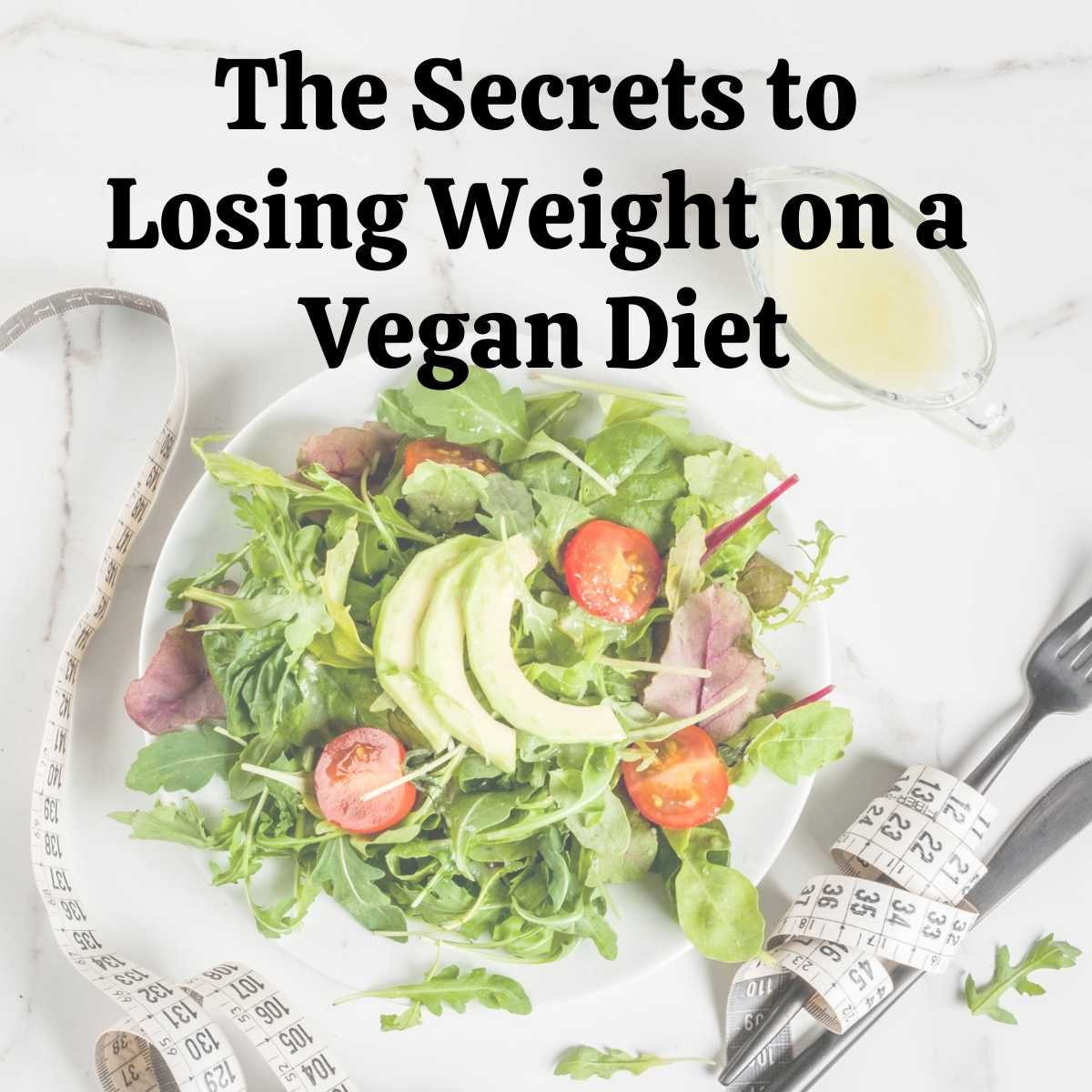
Jump To
Why you’re not losing weight on a vegan diet
How to lose weight on a vegan diet:
-Maintain a calorie deficit
-Focus on fiber
-Choose whole grains
-Drink more water
-Eliminate oils
-Avoid added sugar
-Time your meals
-Eat slower
-Have healthy meals prepared
FAQ’s
Why you’re not losing weight on a vegan diet
There’s a common misconception that vegan = healthy. In reality, vegans can fall on the broad range of healthy to unhealthy diets just like any omnivore diet.
A lot of that boils down to processed vegan foods. Vegans can eat chips, cake, cookies, soda, mock meats and cheeses. Just because it’s vegan doesn’t mean it is healthy.
The plus side is that a vegan diet can absolutely aid in weight loss if done in a healthy and sustainable way. After all, you want to keep the weight off don’t you?
Now, everyone knows the basics like to cut out processed foods, drink more water, etc. But actually putting advice into action is the hard part.
We’re going to dive into the best tips and strategies for weight loss on a vegan diet so you can lose weight, feel great, and stop yo-yo dieting.
Disclaimer: Make sure to check with your primary care physician before starting a new diet, especially if you are currently taking medications.
How to lose weight on a vegan diet
Maintain a calorie deficit
Weight loss as a concept is really quite simple. If you burn more calories than you consume (food and drinks), you’ll lose weight. Easier said than done.
Let’s start with ways we burn calories: resting metabolic rate (the calories we burn just to stay alive like pumping blood or growing new cells), non-exercise physical activity (standing, walking around the house, doing laundry, cleaning, etc.), exercise, and diet-induced thermogenesis (the energy it takes to digest the food we eat).
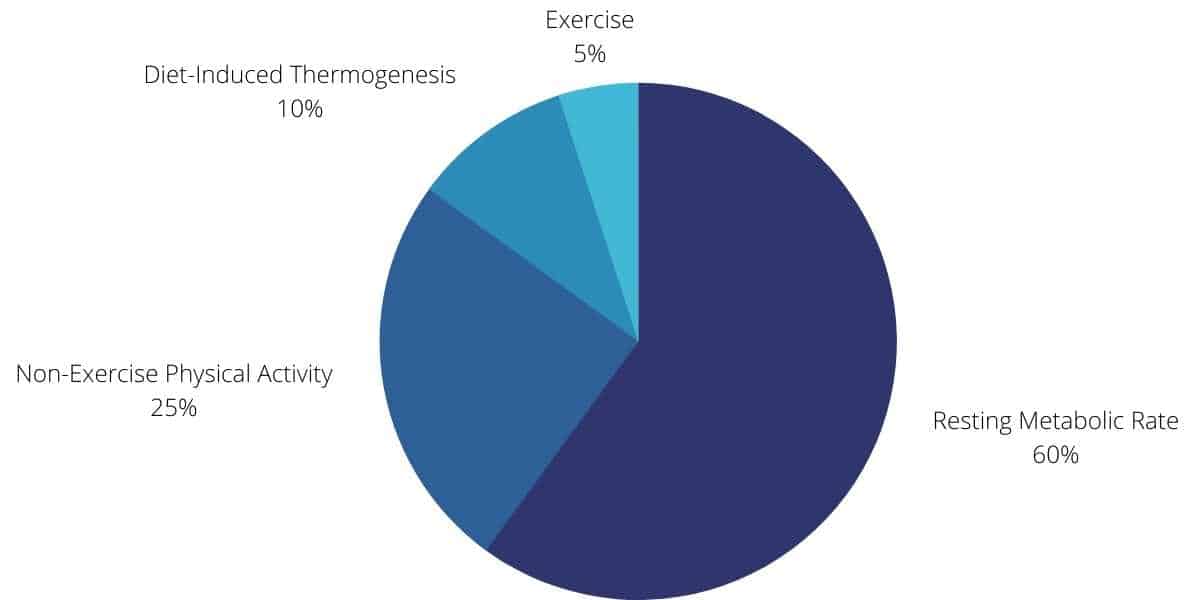
Exercise accounts for only 5% of the calories we burn. This is why we can’t outrun a bad diet.
To burn off one donut you’d have to walk for close to an hour or run for 23 minutes. Plus, exercise, especially high intensity ones, rev up our appetite and can actually cause us to eat more and unintentionally move less over the following few days. There’s no need for intense exercise, but a little daily movement is good for health in general.
The good news is you can lose weight without exercise or spending hours in the gym. Move more, but don’t make it your main source of calories out for weight loss.
Take a 30 minute brisk walk a few times a week or do some light weight resistance training.
And the best time to workout? In the morning before a meal if possible, tends to burn the most fat.
If you can’t, the next best time is 6 hours after a meal like before a late lunch or before dinner time if you had an early lunch.
Why? Carbohydrates are the preferred fuel for our bodies which means after a meal they get broken down and converted into blood sugars.
Our muscles then use them for fuel without needing to rely much on our energy stores of fat. However, when exercising fasted, our muscles dip into our energy stores so we burn more fat while exercising.
So how do we maintain a calorie deficit without focusing on exercise? Focus on the calories in side of the equation. Eat less than you burn. Not sure how many calories you need a day? Check out this calorie calculator to get an estimate.
Read on for the best tips to help you maintain a calorie deficit more easily on a vegan diet.
Focus on fiber
Fiber is zero calories but filling and nutritious. Fiber is indigestible meaning our body can’t absorb it and is often just thought of helping us with regular bowel movements. However, we have billions of little helpers in our colon in the form of bacteria that can digest fiber.
When our good gut bacteria break down fiber, they turn it into short-chain fatty acids (SCFAs) that can be absorbed into our bloodstreams and bodies. These SCFAs play an important role in regulating our appetite, metabolism and body fat.
When we increase our fiber intake it also leads to a decrease in daily caloric intake. Why, you ask? The fiber adds bulk to food, but not calories, so we fill up on less calories per volume.
For example, one study showed that a high-fiber whole wheat pasta with pureed fruits and vegetables left the stomach 45 minutes later than a meal with the same volume and same calories but made with white pasta and fruit and vegetable juices (with fiber removed).
This slower emptying of the stomach leads to a longer feeling of fullness and less calorie consumption at later meals.
Additionally, fiber can act as a natural fat- and starch-blocker. When you eat apple slices with peanut butter, some of the peanut oil calories get trapped in the fiber from the apples and make it all the way through the intestine without getting absorbed.
A Standard American Diet loses about 5% of the calories in waste but a diet higher in fiber can double that. This means you can lose more weight eating a high-fiber diet with the same number of calories.
On a Standard American Diet, people get less than half the recommended daily fiber. If you increase fiber intake to the minimum recommended amount of about 30 grams a day, it could potentially decrease daily calorie absorption by one hundred calories!
Additionally, choosing higher fiber foods also helps to crowd out the less filling, processed foods. It’s a win-win!
Fiber is only found in plants. Here are some high fiber options:
- Beans and legumes (kidney beans, chickpeas, black beans, lentils, etc.)
- Whole grains (quinoa, oats, whole wheat, etc.)
- Nuts and seeds (almonds, walnuts, chia seeds, sunflower seeds, etc.)
- Fruits (avocados, pears, apples, etc.)
- Greens (kale, broccoli, Brussels sprouts, etc.)
- Root vegetables (sweet potatoes, onions, beets, carrots, etc.)
Choose whole grains
Ditch the white bread and opt for whole grain bread. My favorite is Ezekiel which is a sprouted grain bread. No add oil or sugar and full of high fiber grains!
Same goes for pasta. Choose pastas made from 100% whole wheat or other whole grains.
These easy swaps make increasing fiber intake a breeze!
Drink (and eat) more water
Avoid liquid calories by drinking more water. Liquid calories like sodas, juices, energy/sports drinks, and alcohol can be high in empty calories and sugars which throws off your metabolism.
Don’t like plain water? Try adding a squeeze of lemon or lime like this Lime Agua Fresca. Add fresh mint or berries to flavor water naturally.
Eating foods high in water content also adds bulk much like fiber does. Apples and oranges, for example, are about 85% water. Since they are low calorie but bulky, you can fill up on them quickly without consuming a lot of calories.
High-water foods also tend to take longer to chew and eat, which sends signals to our body that we’re getting full and in response regulates our appetite.
Eliminate oils
Oil is essentially pure fat. It’s stripped of fiber (and most of the nutrients that are attached to fiber). One tablespoon of olive oil contains 120 calories of mostly empty calories.
Eliminating oil is an easy way to reduce calorie intake. When cooking, simply replace oil by sautéing with water, vegetable broth, balsamic vinegar, or soy sauce. The latter three also provide great flavoring without as many calories as oil!
All the recipes at Health My Lifestyle are designed oil-free. You’ll be surprised how much you don’t miss oil when you stop cooking with it.
Eliminating added oils also applies toward packaged foods. If you see oil on the label, skip it. Most likely it’s highly processed, low in nutrients, and high in calories anyways. That’s a recipe for disaster if you’re trying to lose weight.
Stick with the source of oil: the whole olive, peanut, avocado, etc. Eating the whole food provides the healthy fat we need along with the fiber and nutrients for a healthy diet.
Avoid added sugar
Refined sugar is much like refined oil, devoid of nutrients and full of empty calories. Most packaged foods will have added sugar in some form.
Check the nutrition label for added sugars. If you see it, skip it.
To be clear, added sugar is not the same as naturally occurring sugar. Sugar found naturally in fruits should not be avoided.
Eat all the fruit you want! It has fiber to help blunt spikes in blood sugar. And as we’ve learned, high fiber foods aid in weight loss!
Time your meals
There’s a saying that you should eat breakfast like a king, lunch like a prince, and dinner like pauper.
What does it mean? Front-load your calories in the morning and have a large breakfast, then a medium-size lunch, and a small dinner.
Research found that eating 70% of your daily calories split between breakfast, morning snack, and lunch, leaving 30% for an afternoon snack and dinner, increases weight loss.
How?
Calories eaten in the morning are more likely to be burned off due to diet-induced thermogenesis (the energy required to digest food). This is because in the morning our bodies are using energy to string together glucose molecules from the food into chains of glycogen to store in our muscles for later use throughout the day.
The extra step of assembling and disassembling glycogen takes energy that our bodies take from the meal, leaving us with fewer net calories. Pretty incredible right?
Eat Slower
Slowing down the rate at which we eat food improves satiety. Make sure to chew food thoroughly, take your time with soup, and sip smoothies slowly.
If we eat too quickly, our body doesn’t have enough time to send the signals that we’re getting full, which can lead to overeating.
Take your time and savor those meals!
Have healthy meals prepared
When hunger strikes, it’s nice to have meals prepared within arm’s reach in the fridge or freezer rather than succumbing to cravings and ordering vegan take-out. I find meal prep saves me tons of time throughout the week.
Set aside a little time each week to plan out your meals. You don’t have to plan every single thing you eat (unless you want to), but having just the main meals planned and shopped food can ease the stress of eating healthy throughout the week.
Look for recipes online or in cookbooks that are based around whole foods and no added oil. Make sure they sound appealing to you—don’t just pick them because they’re healthy. There’s no need for willpower when you have a delicious meal ready in the fridge that you’re looking forward to!
If you need help finding tasty and healthy recipes check out the Health My Lifestyle Meal Planner. Most recipes can be made in 30 minutes or less so you can meal prep easily without spending tons of time in the kitchen. The customizable meal plans also make it easy to fit your taste preferences and schedule.
FAQ’s
There can be various factors affecting weight loss as a vegan. It depends on what you’re eating (processed foods) and how much you’re eating. If you are overeating, regardless of what you’re eating, you will gain weight. Take note of your diet and see if there are any improvements you can make to lower your caloric intake.
Vegans can lose weight quickly if eating a whole food plant-based diet. This involves eating foods in their whole, unprocessed forms such as fruits, vegetables, whole grains, beans, nuts and seeds. These foods are high in nutrients but low in calories compared to standard Western diets. This can allow vegans to easily be in a calorie deficit and lose weight rather quickly.
While many people to see an initial weight loss by switching to a vegan diet, it is not guaranteed. It largely depends on what you were eating previously and what you eat after going vegan. If you started out eating processed junk food and simply switched to vegan junk food, you most likely won’t see weight loss. However, a healthy plant-based vegan diet can be beneficial in weight loss and weight maintenance.
Some people see weight loss after their first week eating vegan. Eating a healthy plant-based vegan diet can provide fast weight loss results if done properly.
Research shows that high-protein intake during weight loss has been found to have negative metabolic effects, which undermines the improvement of insulin sensitivity from weight loss.
If you’re worried about muscle mass, the best way to preserve muscle mass during weight loss is through exercise. Including resistance training, even just a few times a week, can help prevent more than 90% of the loss of lean body mass (muscles) during caloric restriction.
If you do want to add some additional protein to your diet, you can use a plant-based protein powder (such as this homemade pea protein, made from yellow split peas). Just make sure that there’s no added sugar if buying it from the store.
Are you struggling to lose weight on a vegan diet? Let us know which tips you plan to implement in the comments below!
Have you lost weight as a vegan? Share your journey in the comments below to inspire others!
This article was inspired by the book How Not to Diet by Dr. Michael Greger. If you found this information helpful, check out the full book for an in depth look at weight loss!

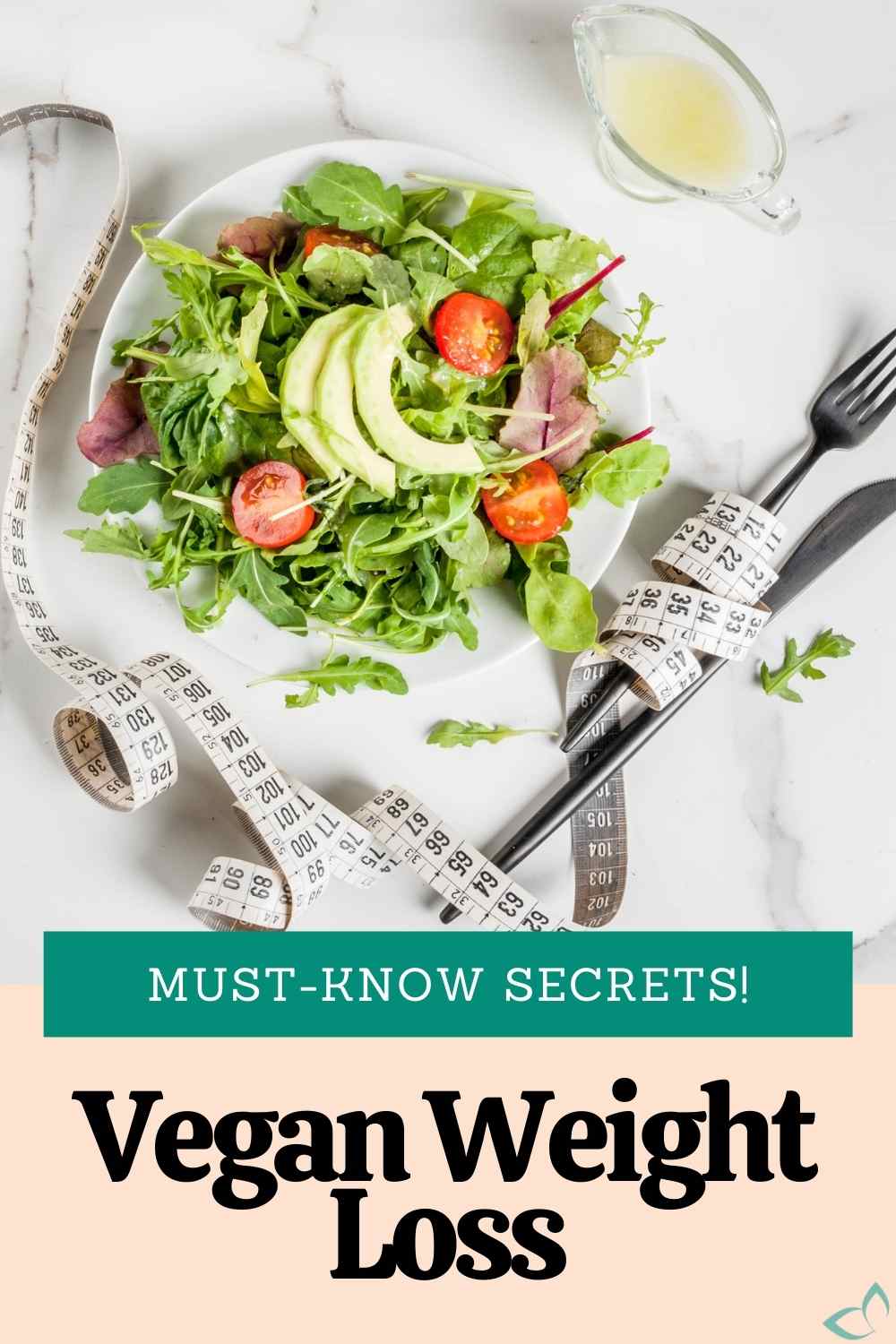
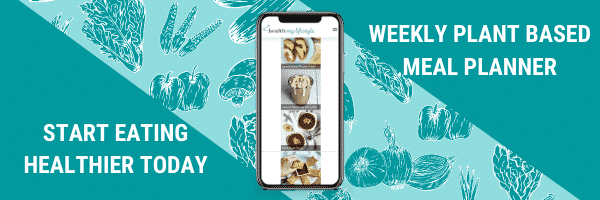
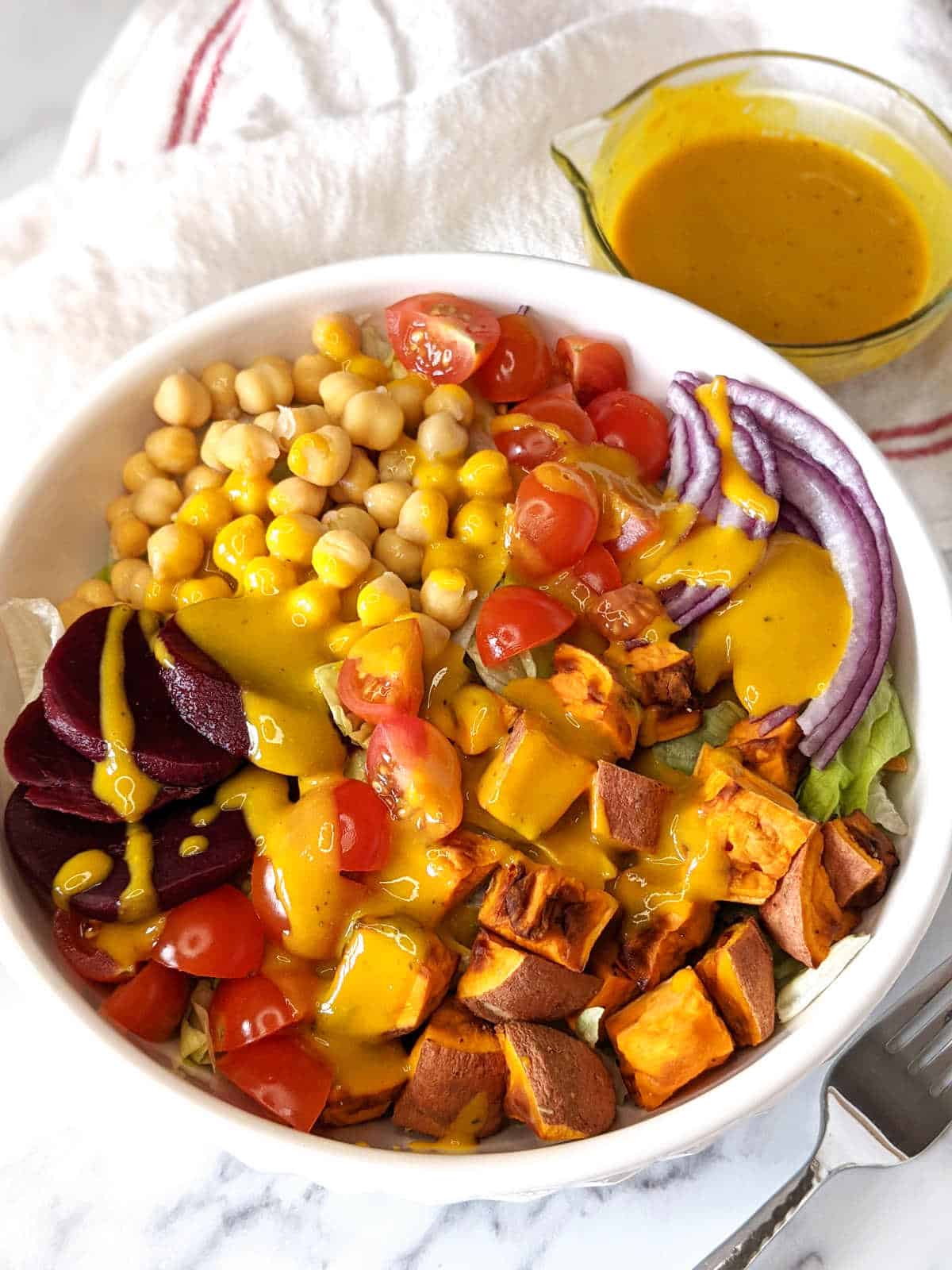
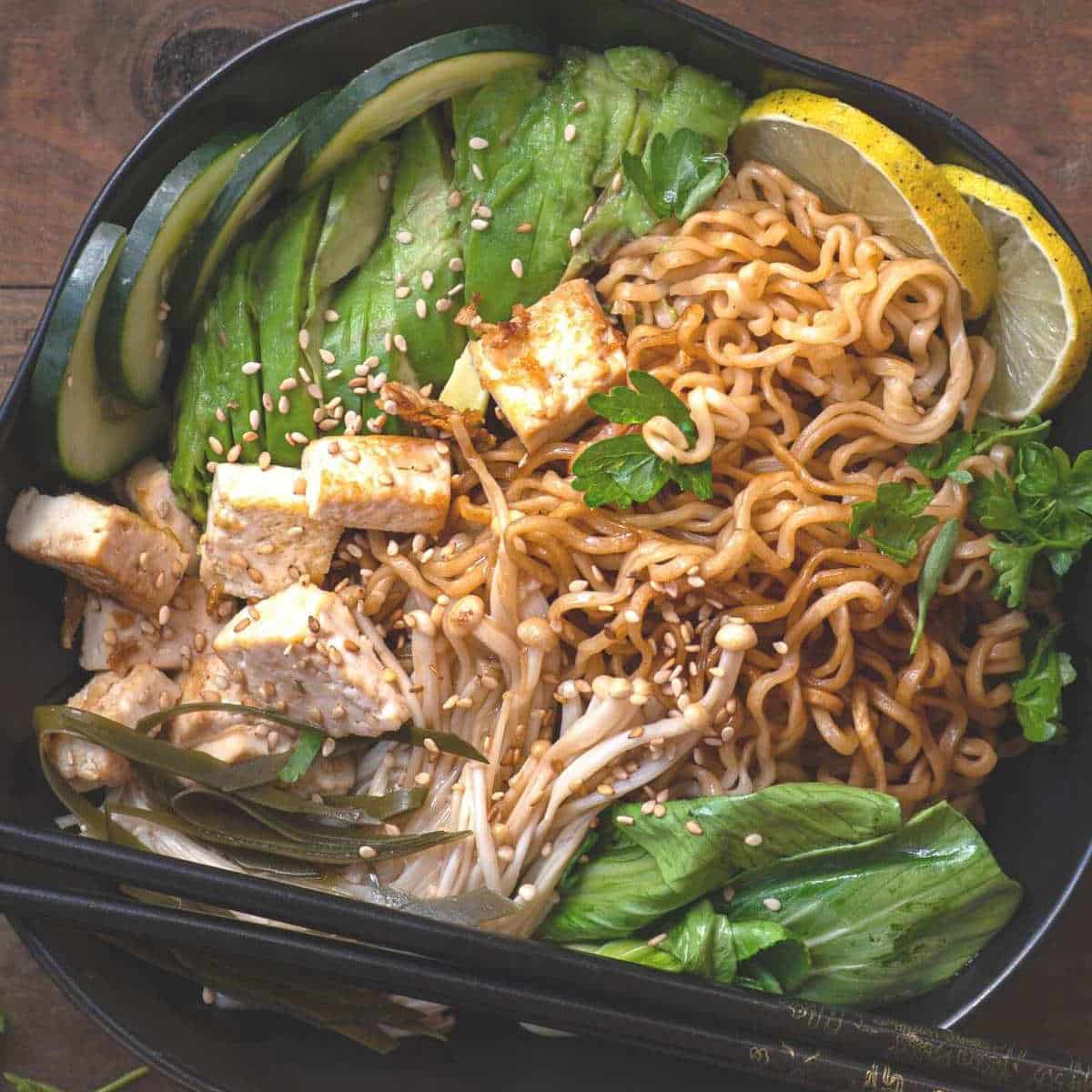
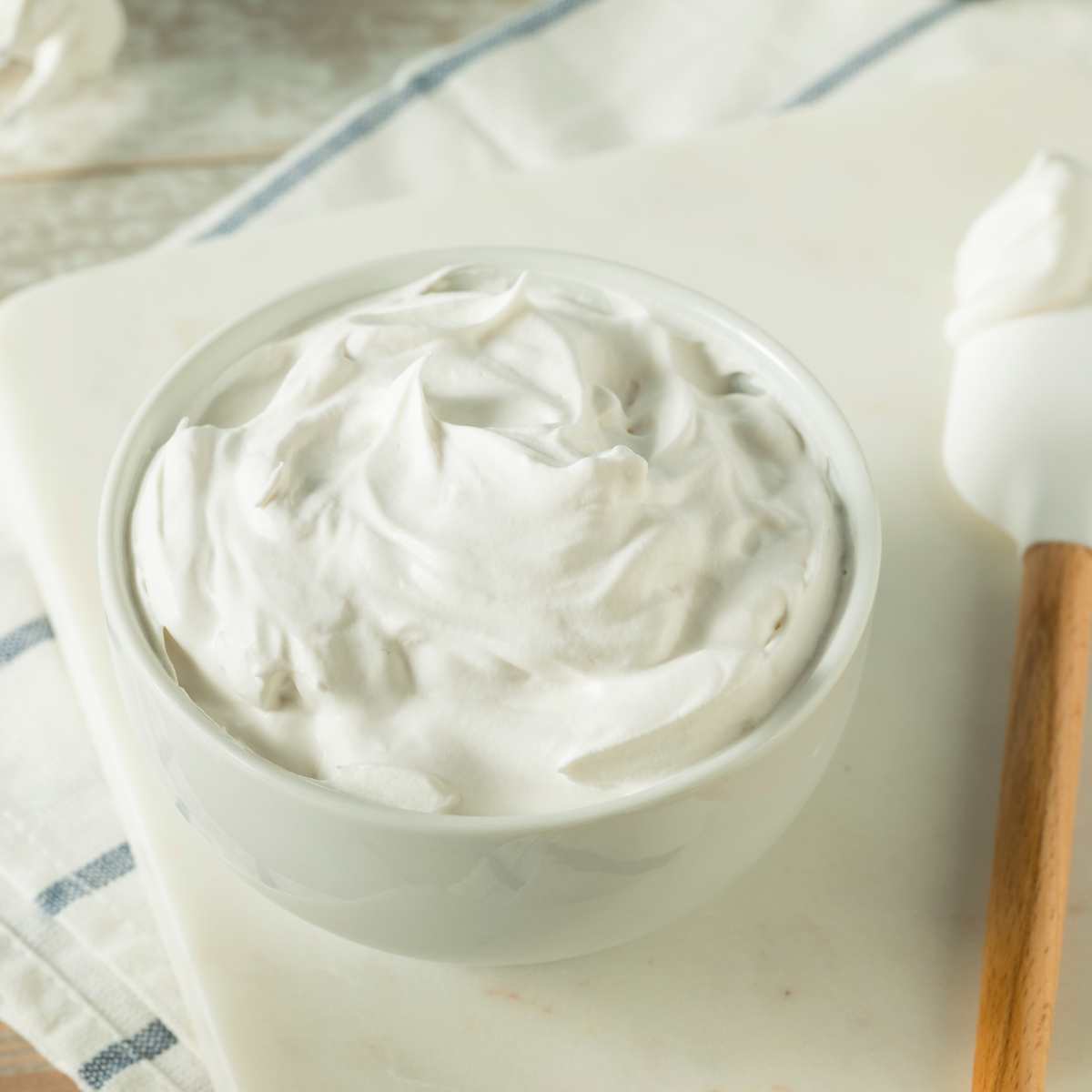
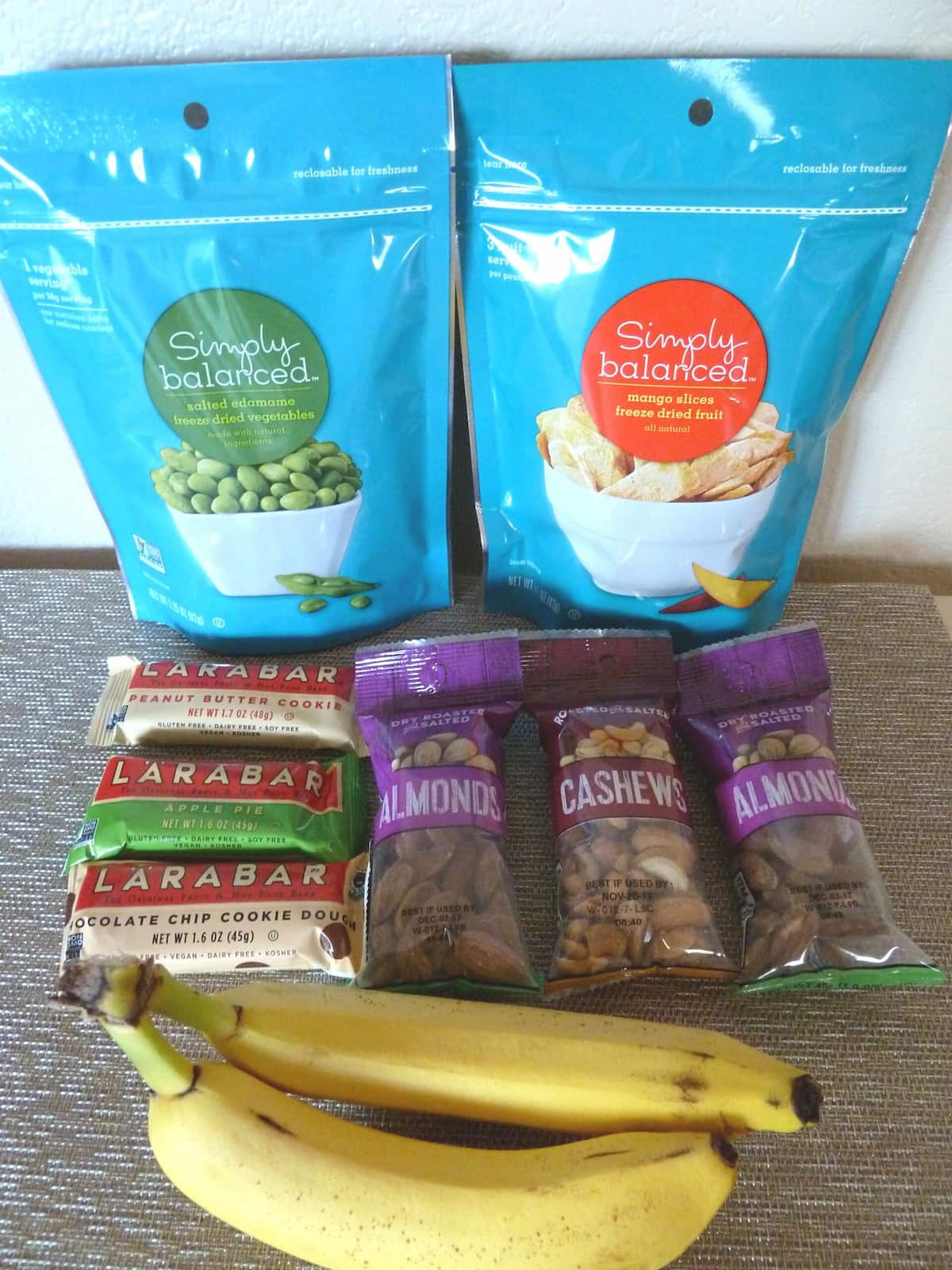
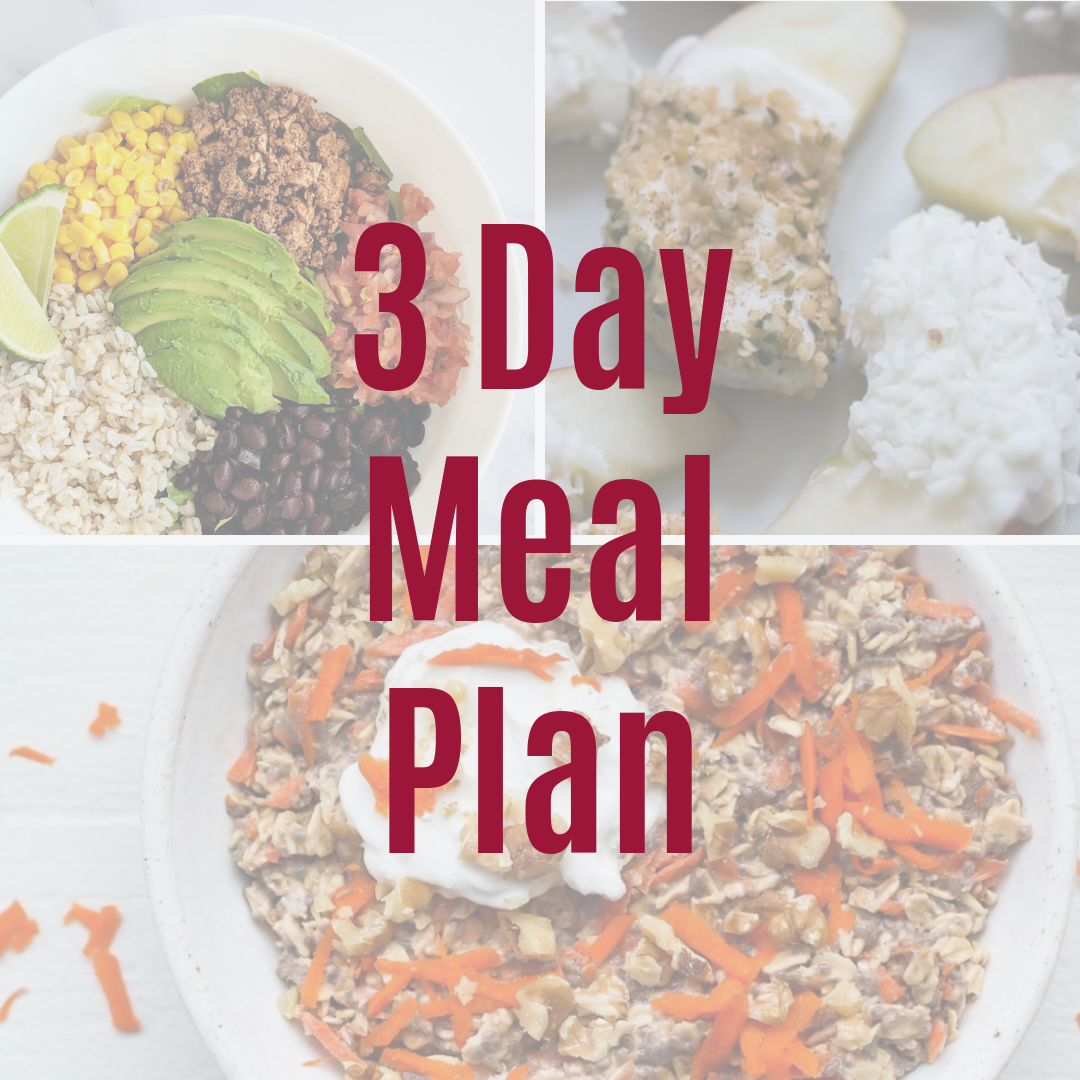
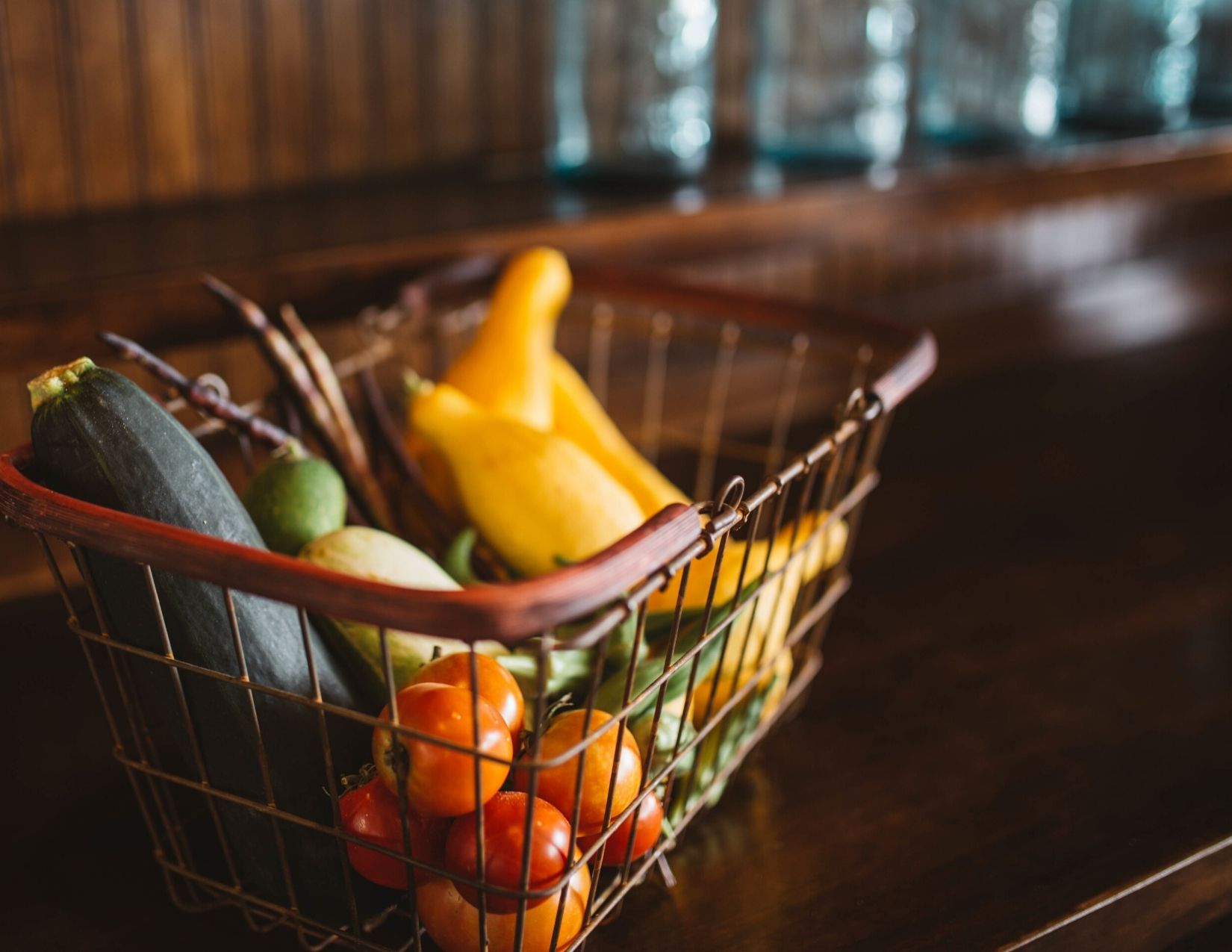
Thank you, I appreciate it!
Wow. So glad I found this article. I’ve been Intermittent fasting for almost a year now and I switched to a whole foods plant-based diet during my eating time and it totally changed the game for me! I feel energized! I feel so much “lighter” and I seem to keep losing inches and some pounds rather quickly!! I eat whole plant based daily, no processed sweets, and no processed plant based meats. I also eat high fiber veggies, beans and some nuts! Its been great so far. I want to make this apart of my daily lifestyle. This article showed me that I am on the right track!
That’s amazing, Tina! Thanks so much for sharing your experience so far and I’m so happy to hear that you want to make it part of your daily lifestyle 🙂
Thank you very much for this article. It is very illuminating. I just started vegan after learning about animal exploitation. And thank you for recommending the book How to Diet! I got the book and started reading it!
You’re welcome! I’m glad you found the article illuminating and it’s great to hear that you’ve started a vegan lifestyle after learning about animal exploitation. I hope the book “How Not To Diet” proves helpful to you as well! Enjoy your reading 🙂
How do you get enough protein when you hate beans? If I drop dairy I’ll get close to no protein. Help?
While beans are certainly a great source of protein, there are also many other plant-based foods that are rich in protein such as lentils, quinoa, tofu, tempeh, nuts, seeds, and even some vegetables like broccoli and spinach. If you’re looking to diversify your protein sources, this article shares the top 20 plant protein sources 🙂
I just wanted to say thank you so much for this! I recently decided I’d like to lose the weight I put on during pregnancy (2+ years ago!) and this article made it feel much less daunting and very simple. I’ve never been in the position of wanting to lose weight, so I’ve been a little unsure of how to approach it (but I know I don’t want to do any fad diets). Exercise is important but it’s honestly a relief to know that I don’t have to be in the gym every day; just getting out and moving is the best. I’m already vegan so that makes it even easier. Just planning to track calories (Cronometer is great!), eat more whole foods, and reduce the cooking oil/processed foods/added sugar. I truly appreciate how simple and straight forward you made everything and now I’m looking forward to making changes! Thank you again 🙂
You’re so welcome, Taylor! I am so glad you found this article helpful and truly appreciate you sharing your story! Best of luck in your weight loss journey 🙂
When I became vegan 6 months ago I initially lost 17lbs. Since then, nothing. It’s very discouraging.
Losing 17 pounds is impressive but I know it can be discouraging when you hit a plateau. Have you tried any of these tips yet?
I have eaten vegan for a week now and have gained 2lb. I have been cooking from scratch and eating healthily. Don’t really know where I am going wrong. The only thing I can think of is oil. I really don’t want to track calories as I find it quite obsessive, is this essential?
Tracking calories for a few days could help you to find your baseline and then adjust after that. No need to track long term. Oil does quickly increase calories as well as high fat foods like peanut butter. I enjoy cooking oil free and limit nut butters to 1-2 tablespoons. Here’s an oil-free cooking guide that can help: https://healthmylifestyle.com/how-to-cook-without-oil/
Hello, Rachel! Dr Greger is the reason I’ve been plant-based for the last 5 years. Just wanted to tell you that I think this is an impressive summary of the information in How Not to Diet! Thank you for putting it together!!!
Thank you so much Samantha!! 🙂 It was definitely a labor of love but I hope it helps introduce more and more people to Dr. Greger and his research!
Hi there,
I have started a vegan diet and I have not lost any weight and am really stressed about putting on weight.
I calorie counted for a few months and lost 12kgs. But now with eating vegan, a lot of great healthy foods are high in calories what is the trick?
It really does come down to calories in versus out. I would track your calories for a week to see what your baseline is, then reduce your calories by 200-300 a day. Some simple things to reduce calories are to use one tablespoon of peanut butter instead of two or stop cooking with oil and use water or vegetable broth instead. Hope this helps!
I’ve been an almost vegan for a week (that means that 95% of my diet is vegan. I coined this term because I still eat liver a few times a week, as I can’t really get iron properly through plant sources…I’ve really tried). In the first week of veganism, I’ve lost 7 pounds. I’ll come back in a couple months and update my progress.
Congrats on adding more plants to your diet! Definitely keep us posted on your progress—so excited for you! 🙂
I’ve been vegan for a month and initially I lost weight as well – but I have found it has come back on. No need to eat liver – you can get iron properly through chick peas. They have more protein and iron than steak. You can get iron from many plant bases.
I’m thinking my issue is that I keep eating “vegan” snacks – chips and things. I need to remember SOS – stay away from Salt Oil and sugar.